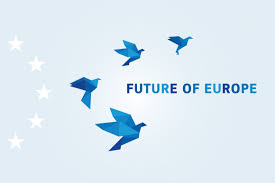With the rise of nationalism, the consensus around the European project is wavering, jeopardizing the very existence of a supra-national entity, the European Union, which, although critiqued and imperfect, constitutes a fundamental space for the protection of rights and liberties beyond national borders.
The future of Europe does not lie in the multiplication of sovereign states. If it did, it would more closely resemble the supra-national and multiethnic entities of the 19th century – but with the added feature of democracy.
However, it is clear that the nation-state is now drained of its power by globalization and at the same time threatened by secessionist and regionalist pressures.
A few years ago, questions like these would have been considered largely irrelevant or even provocative. But recent events – for example, the demonstration on the occasion of the anniversary of Poland’s independence turned into a neo-fascist and racist procession; the troubling trend of considering ethno-linguistic or religious identity as the foundation for coexistence within states – have suddenly made them relevant and worthy of reflection.
The most appropriate parallel is another, much more useful, especially when reflecting on the present: that with the European Union being part of a vast free trade area, with a common currency and shared and renegotiable fiscal and economic rules.
A response to this crisis could come from the birth of a federal and regional Europe, where decisions are increasingly made at the level closest to the citizens. The path is long, and the project is still in its embryonic stage. But one can find useful and relevant models in the multi-ethnic and multinational experiences of Europe’s past.
From a social perspective, this structure made possible the existence of “hybrid and varied identities” and was the origin of a public space “in which the limits of national categories could be transcended.” The cultural effervescence of Central Europe at the beginning of the 20th century is also a product of this situation.


